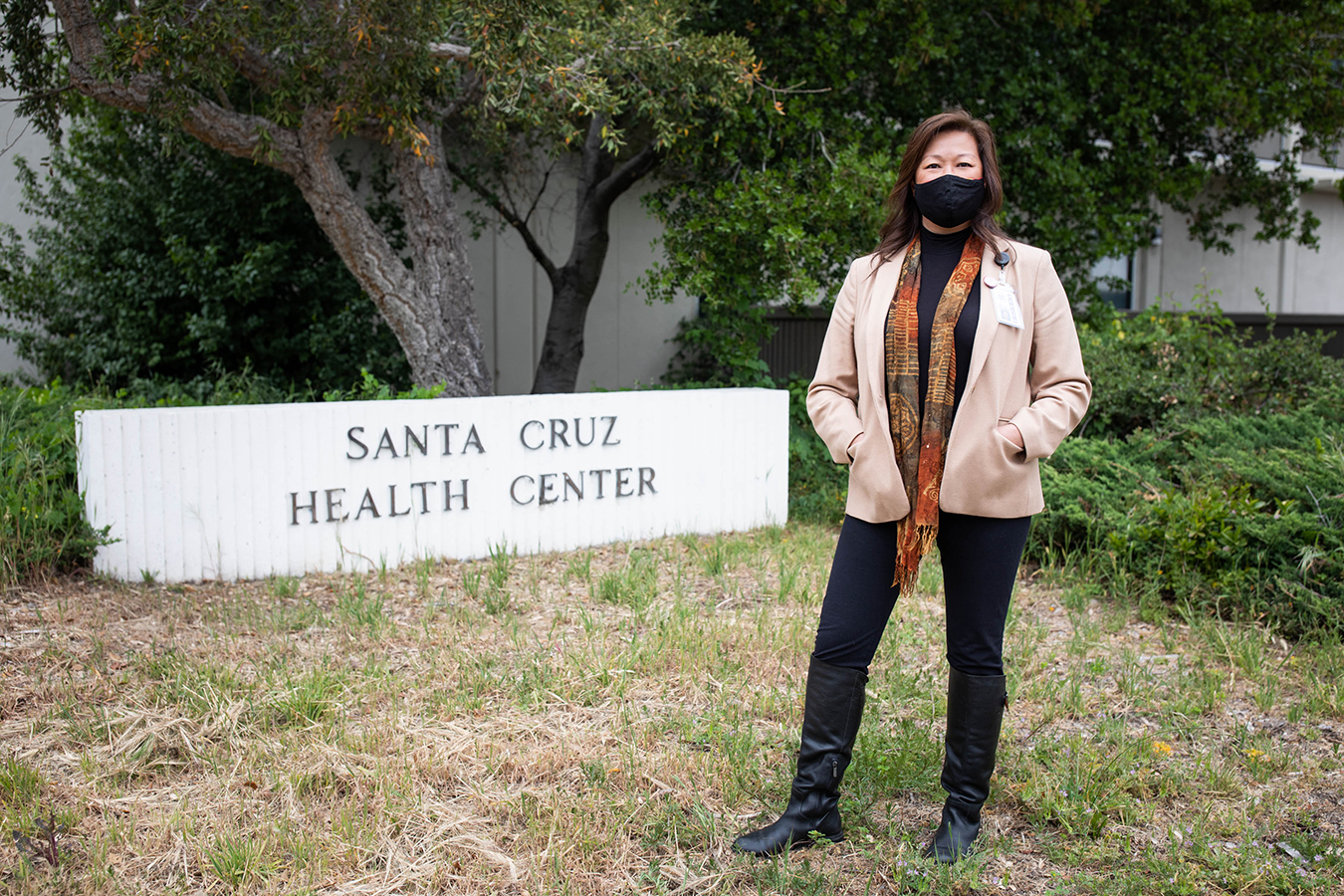[Editor’s note: This article contains strong language that readers might find offensive or disturbing.]
SANTA CRUZ COUNTY, Calif. — Dr. Gail Newel looks back on the past year and struggles to articulate exactly when the public bellows of frustration around her covid-related health orders morphed into something darker and more menacing.
Certainly, there was that Sunday afternoon in May, when protesters broke through the gates to her private hillside neighborhood, took up positions around her home, and sang “Gail to Jail,” a ritual they would repeat every Sunday for weeks.
Or the county Board of Supervisors meeting not long after, where a visibly agitated man waiting for his turn at the microphone suddenly lunged at her over a small partition, staring her down even as sheriff’s deputies flanked him and authorities cleared the room.
The letters, emails and cellphone calls that now number in the hundreds and inevitably open with “Bitch,” and make clear people know where she lives and wish her dead.
And that January meeting with Santa Cruz County Sheriff Jim Hart, after the vicious mob attack on the U.S. Capitol, when he recommended to a roomful of county officials that deputies do a threat assessment at each of their homes. Newel, who’d already been through the process, casually mentioned a New Year’s resolution to get more exercise and start walking to work. Absolutely not, Hart told her. She wasn’t walking anywhere without an escort.
Newel, 63, is the health officer in Santa Cruz County, a picturesque string of communities hugging California’s rugged Central Coast. In normal years, hers would be a largely invisible job that involves tracking measles outbreaks and STD infections, testing children for lead exposure, and alerting the public to tainted lettuce and unhealthy air. Covid has changed all that, in ways both expected and not. Newel, like health officials across the nation, has been thrust into an unwelcome spotlight and subjected to extreme scrutiny from politicians and the public over mask requirements, business closures and the extended interruption of travel and social gatherings.
Some of the dissent was understandable: the shocked response of residents asked to make unprecedented sacrifices during a time of great uncertainty. But in Santa Cruz and many other U.S. communities, legitimate debate has devolved into overt intimidation and threats of violence.
Public servants like Newel have become the face of government authority in the pandemic. And, in turn, they have become targets for the same loose-knit militia and white nationalist groups that stormed the U.S. Capitol in January, smashing windows, bloodying officers and savagely chanting “Hang Mike Pence.”
Over the course of a year, Newel and her boss, Santa Cruz County’s health services director, Mimi Hall, have seen their lives upended for reasons well beyond the exhausting workload that comes with battling a devastating pandemic. Their daily routines now incorporate security patrols, surveillance cameras and, in some cases, personal firearms.
They are public servants who no longer feel safe in public.
“When I do have days off, I don’t want to be out in the community. I’m intimidated to be out in the community,” Newel said. “I’m looking to see who might be close to me or to my car, who might be following me — looking to see if there’s any kind of situation that I might not be able to get out of or that might be dangerous to me in some way.”
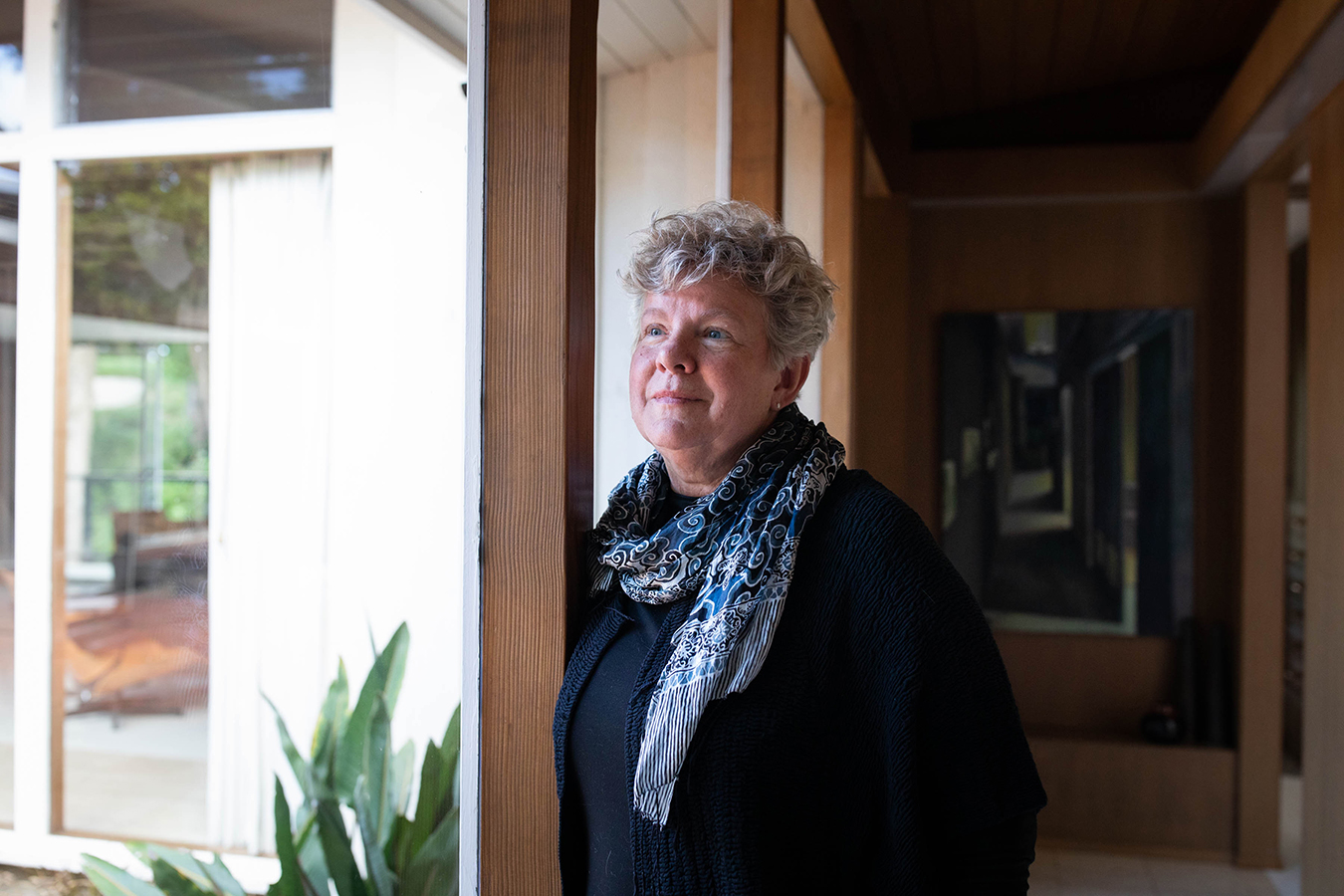
***
Newel was born and raised in the city of Fresno in California’s Central Valley, a region known for industrial-scale farming and conservative politics. After completing degrees in medicine and public health, Newel returned home to work as an obstetrician. There, in addition to delivering hundreds of babies, she helped develop a lactation center, a program for pregnant women with substance abuse issues and a teen pregnancy program. After 30 years of “catching babies,” she’d planned to retire as a doctor’s wife in Santa Cruz, where her wife, also a physician, had taken a job.
The couple call themselves Central Valley refugees; they often felt unwelcome in Fresno County as a same-sex couple. With their adult children already out of the house, they bought a home in Santa Cruz and made plans to spend the rest of their lives there. Newel felt called to serve when the health officer in a neighboring county urged her to consider a second career in public health. She became Santa Cruz County’s health officer on July 1, 2019.
Newel developed an easy affinity with director Hall, who has the broader responsibility of managing all countywide medical, behavioral and environmental health programs. Hall, 53, was born in Myanmar, where her parents worked as doctors in a small hospital without running water or electricity. The family relocated to the U.S. when she was a young child. Hall has spent her entire adult life working in public health, the past 22 years in California county government. She worked in the heart of the Sierra Nevada before moving north to Plumas, a county bigger than Delaware but so sparsely populated that its county seat isn’t designated a city.
There, she said, she fought with elected officials who didn’t believe in her work. She said her children, among the few Asian Americans in Plumas, experienced racism and bullying. When Hall was hired by Santa Cruz County in 2018, she moved her husband and three kids to a seemingly bucolic home in the redwood forests of the Santa Cruz Mountains.
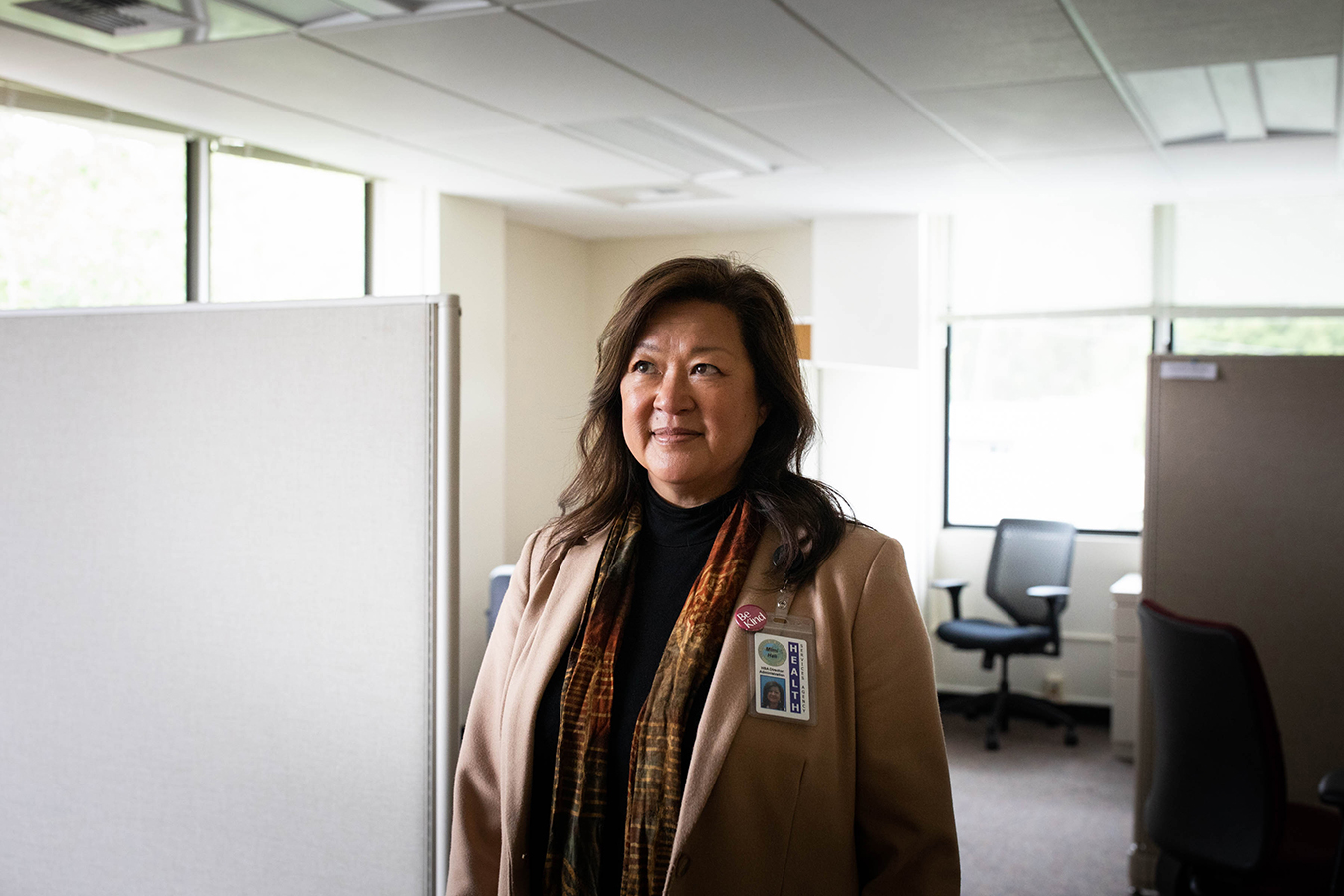
As health officer, Newel is part of a fraternity of greater Bay Area health officers who, since the early AIDS era, have met regularly to work on public health issues. Many of her local counterparts have deep knowledge of infectious diseases and, in the early days of the pandemic, she leaned on them heavily. In California, like many other states, every county is required to have a health officer. That person must have training in medicine, and, in emergencies, is granted broad authority to keep the public safe.
When Newel’s Bay Area counterparts issued the first sweeping stay-at-home orders in the nation on March 16, 2020, she was just hours behind in issuing one for Santa Cruz. It ordered most businesses to close and banned most travel and social gatherings. A few weeks later, in an effort to keep tourists away, she ordered the beaches closed as well.
It was a grueling time — both Newel and Hall went months without a real day off — but adrenaline-filled. They set up testing sites, organized data-tracking operations, coordinated with dozens of state and local groups on covid response and oversaw contact tracing for hundreds of cases.
And, as life-threatening pandemics go, they were off to a good start. Research suggests that lockdowns are most effective when initiated early, and that research is reflected in the Santa Cruz experience. Through June 2020, only a handful of people were diagnosed in Santa Cruz each week, and just two people had died from the virus in a county of 280,000, a fraction of the national death rate.
***
Santa Cruz County might seem an unlikely venue for menace. It’s known for its laid-back vibe and hippie communes. But it’s also a study in divergence: Multimillion-dollar estates are tucked into the Santa Cruz Mountains alongside the barricaded compounds of well-armed survivalists. Farmworkers tend to world-class strawberry fields in the southern part of the county alongside exclusive vacation rentals.
In the early months of the pandemic, the covid diagnoses mostly came from south county, among agricultural workers still tending crops and living in crowded housing. The complaints, however, were mostly from people in the wealthy beach communities, and out-of-towners deeply resentful of the highly publicized restrictions.
The pushback started with angry emails and voicemails, people who contested the beach closures, the intrusion on personal freedoms. But over time, it ventured further, into language that was personal and terrorizing. Newel remembers threatening letters that stated her address and the names of her children. Others included photographs of the front and back of her home from close range, and messages like “Look out; we’re coming for you.” The county clerk helped scrub her address from the internet.
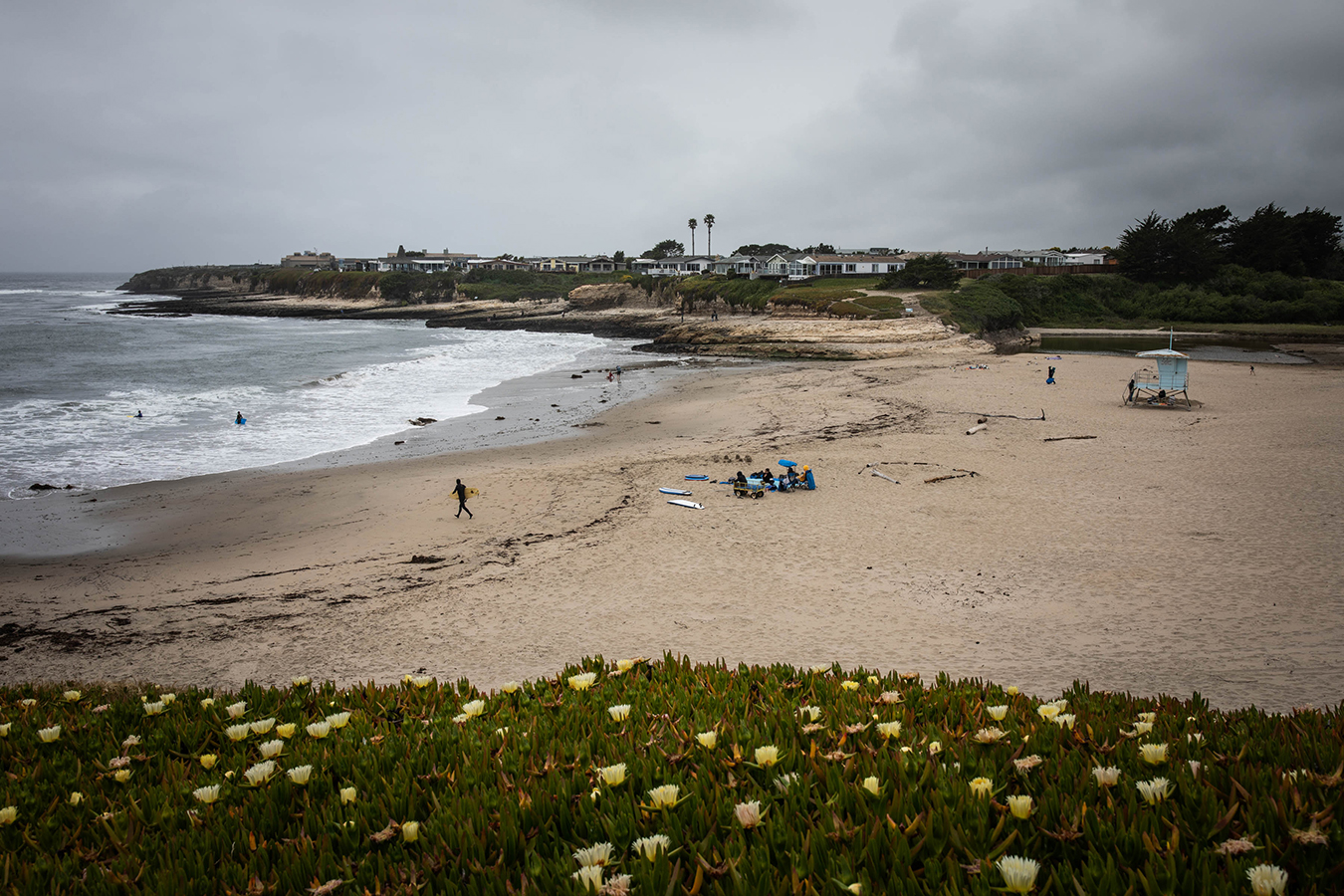
Hall remembers obscene late-night phone calls, and a man who seemed to be casing her home. She took her cell number off her email signature.
Then came the Sunday protesters, who would surround Newel’s home with bullhorns and sirens blaring, their hostile rants making her — and, worse, her family — feel like hostages. “I’m willing to be a public servant, but I don’t think that includes having people trespass onto my private property,” she said. “I was quite worried for my family and for myself and our safety.”
Most local health officials in the U.S. are women and, as the pandemic wore on, the threats took on a clearly misogynistic tone. People used words like “bitch” and “cunt,” and made disturbing veers into sexually explicit references.
At a county Board of Supervisors meeting in late May, a young man, his voice thick with rage, accused Newel of ruining his life by closing the beaches. “You want me to stay inside, get fat, watch Netflix and masturbate?” The hearing was packed with people lobbying for a variance from state closure rules. As in previous meetings, people filmed Newel at close range. During the public comment period, they streamed to the microphone. Many removed their masks. People were visibly agitated, tapping feet, muttering swear words.
Then, a man started toward the mic, but made a beeline for Newel instead. Sheriff’s deputies surrounded him and whisked Newel and Hall out of the room, while a county executive evacuated the meeting. Feeling he could no longer ensure her safety, Sheriff Hart asked Newel to stop attending meetings in person.
In the days and weeks that followed, Hall, too, adopted new routines. She would leave work at 7 p.m., when the security guards ended their shift. On her way out of her office, she called her husband, staying on the phone with him until she was locked in her car. Once home, she checked the charge on the security cameras that provide a full-perimeter view of her home and greeted her dog, who works double time as family member and security detail.
Still, she didn’t know what to make of it all. “You’re not sure — is it really dangerous? You feel this feeling of, well, maybe we’re overreacting, you know?” Hall said.
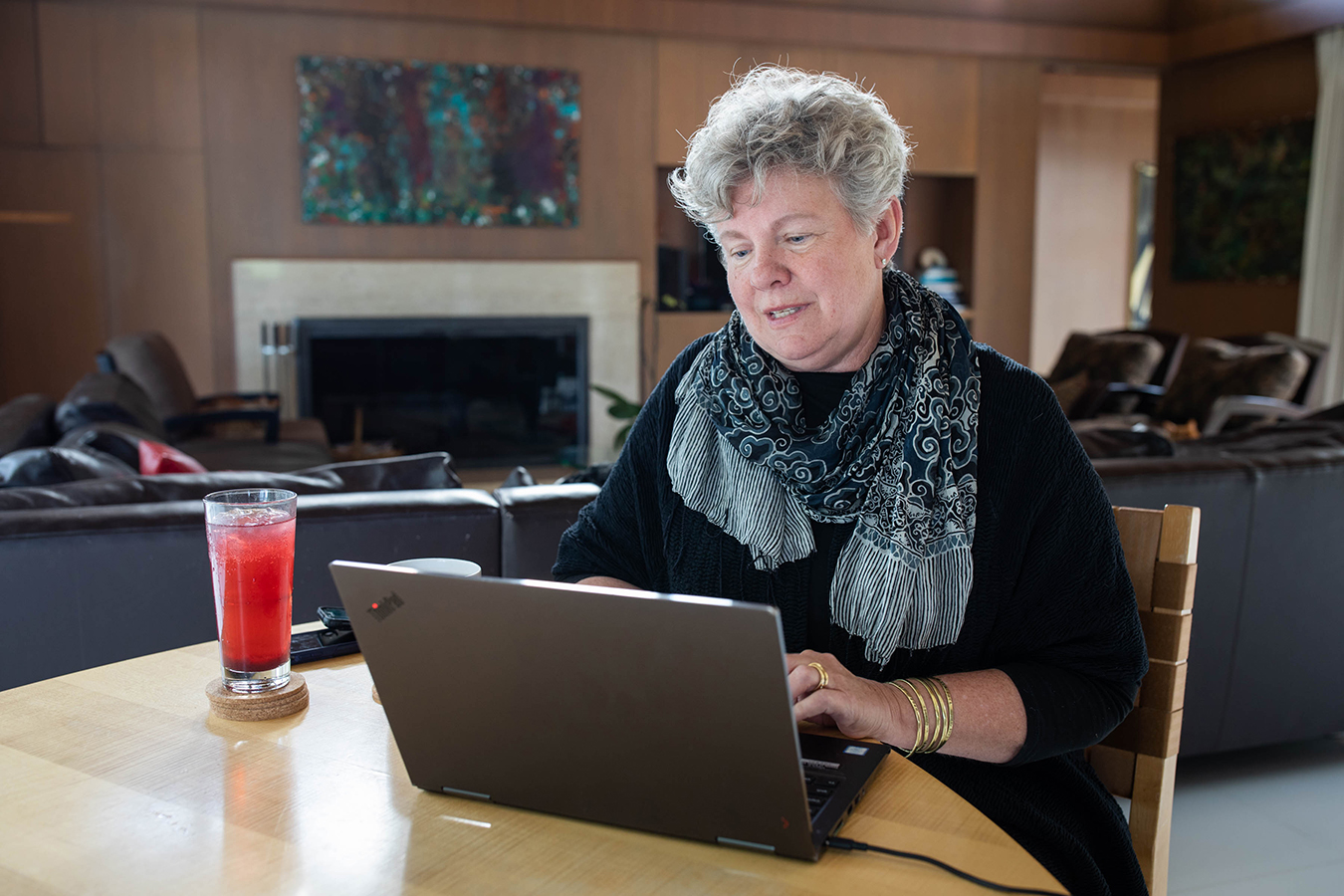
***
Many of the people expressing the most vicious anger over the past year have histories of anti-government sentiment. There are the white supremacists, and groups with adopted militia names. The “sovereign citizens,” who view themselves as governed only by their own interpretations of common law. The people who oppose any government mandates to be vaccinated.
Still, things accelerated during the collision of Donald Trump’s presidency with the pandemic.
Membership in right-wing, white supremacist, anti-government and anti-vaccine groups was on the rise before 2020, under a Trump presidency seen as sympathetic to such ideologies and facilitated by the use of social media to draw in new adherents.
Then came the pandemic, which stranded people in their homes and transformed screens into their primary social gateways. Across chatrooms and websites, folks converged online to share grievances about perceived threats to personal freedoms. They found common cause in rebelling against closures and mask mandates and rallying around Trump. Groups that had previously protested vaccine requirements adopted militia language and imagery. Militias began organizing against health orders, and their tactics were adopted by yet more newly organized groups that formed online.
On April 17, Trump used his favored platform, Twitter, to send a series of calls to “LIBERATE MINNESOTA!” Then to “LIBERATE MICHIGAN!” and “LIBERATE VIRGINIA, and save your great 2nd Amendment. It is under siege!”
It set off a cascade of repercussions for health officials. Thousands of Facebook pages sprung up to organize against stay-at-home orders.
“They just erupted in rage at the lockdowns. [Trump] immediately undercut the credibility of public health officials,” said Heidi Beirich, co-founder of the Global Project Against Hate and Extremism and an expert on militia and white nationalist organizations. “He turned the public health sector into liars and enemies of his supporters.”
Public health is inherently not an individualistic endeavor. It’s the science of improving the health of populations, and more often than not, those improvements are of a collective nature. To bring down rates of smoking, we’ve taxed cigarettes and restricted where people can smoke. Workplaces were made safer through regulations limiting exposure to toxic materials and risky machinery. Infectious diseases are slowed to a crawl through vaccination requirements.
I never thought in my career that I would see professionals, doctors being threatened for doing their job.
Santa Cruz County Sheriff Jim Hart
It’s not surprising that health officials would become the recipients of the backlash associated with anti-government ideologies, said Jason Blazakis, director of the Center on Terrorism, Extremism and Counterterrorism at the Middlebury Institute of International Studies in Monterey. But the country hasn’t reckoned with how covid disinformation is animating those threats.
By the end of May, health leaders across the nation were quitting in droves. In California alone, eight public health officials had left top posts, including Orange County’s public health officer, Dr. Nichole Quick, who’d been given a security detail before she resigned. These were people with extensive training in public health, but also people with deep relationships in the community, the kind of expertise you can’t gain in school.
Just up the coast from Santa Cruz, the health officer for Santa Clara County, Dr. Sara Cody, was receiving so many credible threats by spring 2020 that she and her family were given 24-hour security details. A series of threatening letters were particularly disturbing. They were suspected of coming from the same anonymous author because of sentence structure, but also their “misogynistic content … and clear anti-government position,” a sheriff’s report said. One said: “You are fucking so many for no reason … you will pay a heavy price for your stupidity bitch.” Another read: “You must go no matter how you go … you stupid fucking bitch.”
Santa Clara’s sheriff’s office began investigating.
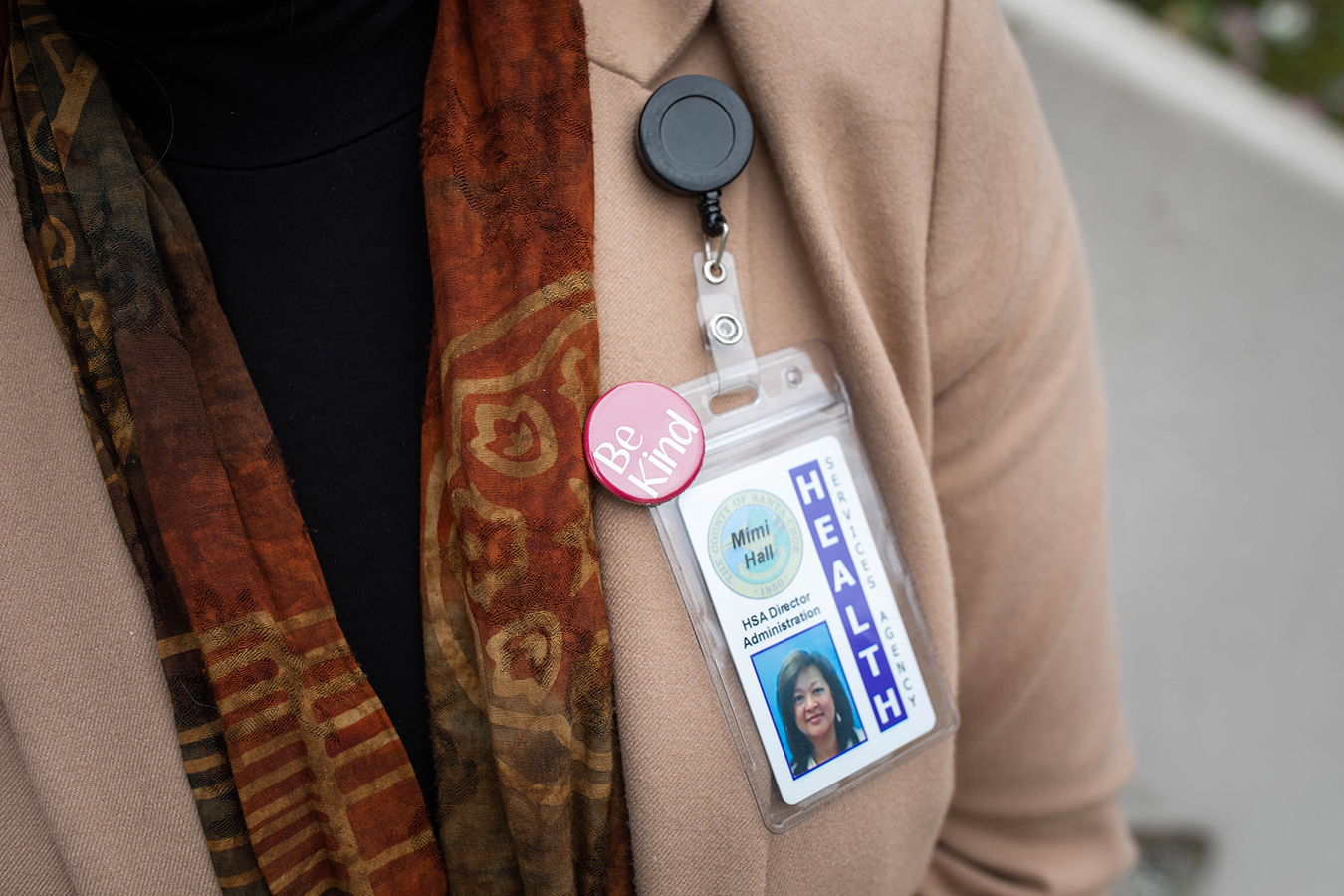
***
Sheriff Hart grew up in Santa Cruz and has been with the department for 33 years. It’s a rustic place without a lot of serious crime. Hart was aware of some members of white supremacist groups in the mountains, but largely considered them benign carryovers from a previous era. “I would always take threats, especially to myself and to some of our staff, with a grain of salt,” Hart said. “We’re in law enforcement; some people don’t like us. I get that.”
June 6, 2020, changed his thinking.
Seven months to the day before the siege on the U.S. Capitol, on a warm Saturday afternoon, a 911 call came into the sheriff’s office. A suspicious-looking van was parked on the side of a road in the mountain town of Boulder Creek, the caller said, and it matched the description of a van used in a drive-by shooting a week earlier in Oakland, when a federal security officer was killed during a Black Lives Matter protest.
Using the vehicle identification number to determine the owner of the van, Santa Cruz sheriff’s deputies made their way to his home, which was just up the road from Hall’s. There, a violent ambush unfolded.
According to law enforcement reports, Steven Carrillo, an active-duty Air Force sergeant, shot at officers with a homemade AR-15-style rifle and threw at least one explosive. He fled, hitting an officer with a car. Driving the backroads, he carjacked at least one person. The brutal episode came to an end when Carrillo was tackled by a young man while attempting to steal another vehicle.
Sgt. Damon Gutzwiller, 38, was fatally shot in the ambush, the first member of Santa Cruz County law enforcement to die on the job since 1983.
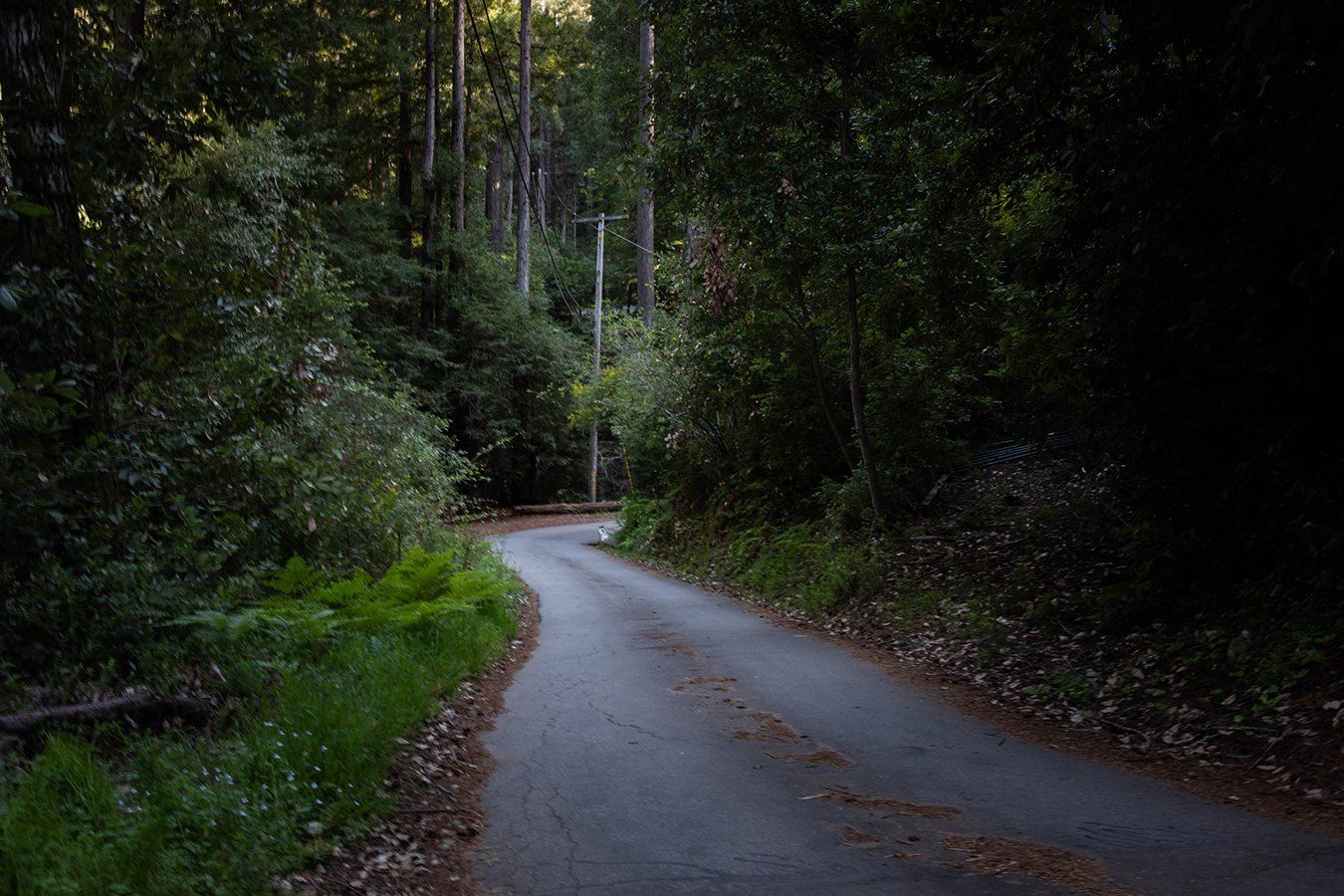
Authorities have since tied Carrillo to an active state faction of the Boogaloo Bois, a secretive and decentralized anti-government movement. Unlike many of the groups pushing back against public health measures over the past year, they are expressly anti-cop. One of their stated goals has been to infiltrate Black Lives Matter protests and cause violence that will be blamed on the left, to incite a civil war. Carrillo has since pleaded not guilty to multiple charges of murder in the Santa Cruz and Oakland attacks.
Hall immediately took down the signs from her fence celebrating her daughter’s graduation and declaring Black Lives Matter — anything that identified them — and installed more security cameras. “I started wondering, Who around me thinks this way? And how close are they?” Hall said.
Newel had a similar response: “Until that time, the threats seemed like nothing but threats. Like, oh, people might say these horrible things to me, but they’re not going to act on them. And then that one action completely changed how I thought about my community.”
Hart was devastated. He had known Gutzwiller since the deputy was a teenager. Before that day, Hart said, he realized that right-wing ideology existed but didn’t understand the level of cold-blooded commitment. He started rethinking the threats to Hall and Newel. “I never thought in my career that I would see professionals, doctors being threatened for doing their job. It’s been mind-boggling to me,” said Hart.
A month later, Hall received a chilling letter containing references to the Boogaloo movement. It began with “Hey, CUNT,” threatened her family and wished her a slow death. Similar letters had been sent to Sgt. Gutzwiller’s widow and the sheriff’s department.
Hart’s department put out a bulletin to other law enforcement, including details of the letters and information about the man they suspected might have sent them. In neighboring Santa Clara, the sheriff’s department noticed similarities to the string of letters their own health officer had been receiving since April.
When the suspect left work midday to mail yet another anonymous letter to Cody, a Santa Clara County sheriff’s deputy was tailing him, according to court records. The suspect, Alan Viarengo, was arrested and charged with felony stalking and harassment of a public figure related to the letters to Cody; he has pleaded not guilty. Detectives searched his Gilroy home and found more than 130 firearms, thousands of rounds of ammunition and materials to build explosives, according to law enforcement reports.
As the criminal case moved forward, Hart suggested that, in addition to security systems, the women acquire firearms. Hall’s husband came home with a shotgun. For Newel, who holds pacifist beliefs, it wasn’t an option. “I wouldn’t ever have a gun in my home,” she said.
That same month, adherents of a sovereign citizens movement the FBI characterizes as extremist and a form of domestic terrorism went to Newel’s home and served her “papers” claiming she’d broken the law. The same group, irate that Santa Cruz Police Chief Andrew Mills had supported Newel’s closure orders and mask mandates, left papers inside his home, on his bedroom pillow, according to law enforcement.
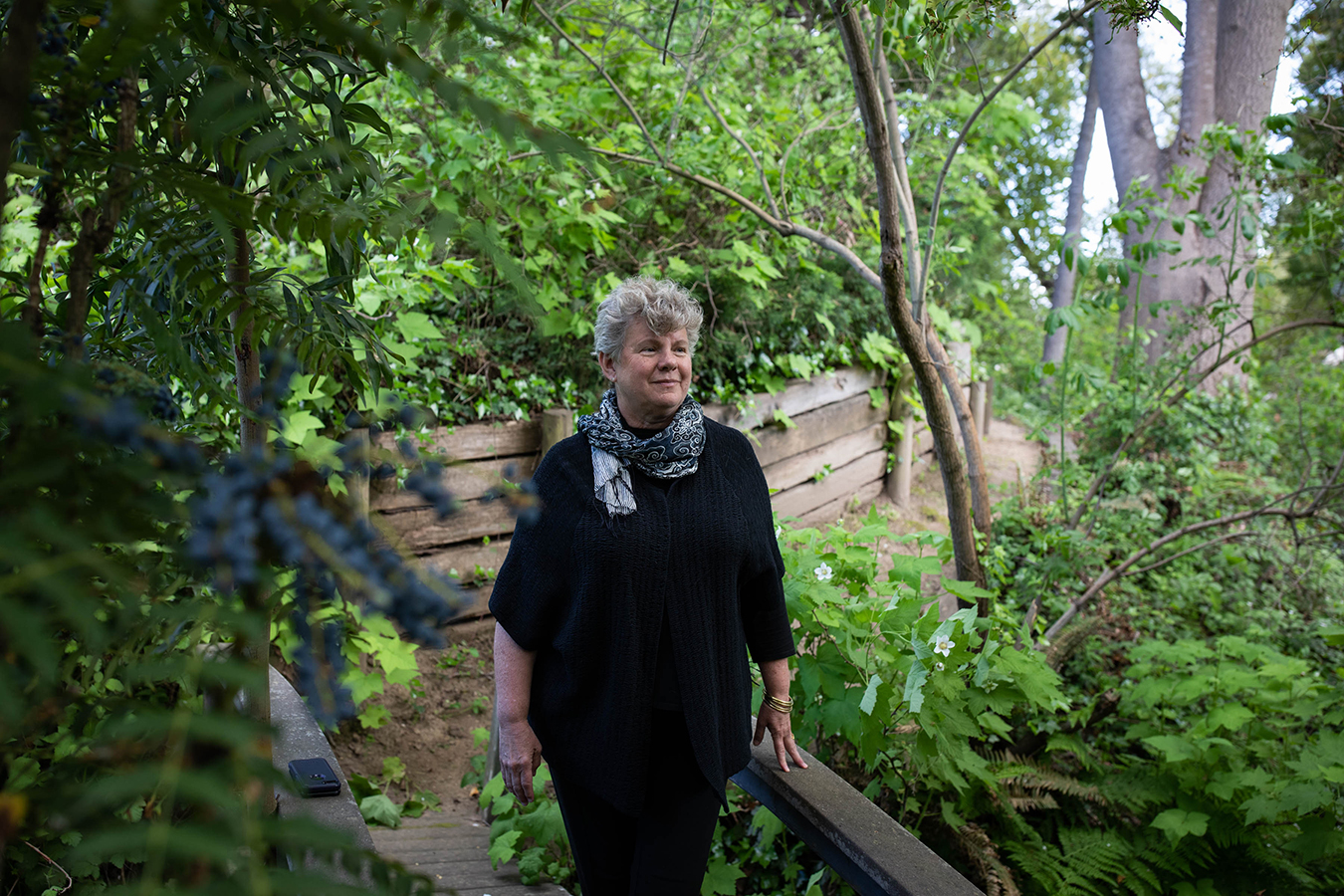
Throughout these episodes, Newel and Hall were still responding to the pandemic. Even as fires raged through the mountains, forcing them to evacuate their homes. Even as they were placed on furlough to make up for budget shortfalls.
When you ask Newel and Hall about the effects of living amid so much bile and unease, both say they are not ruled by fear. But they also describe sleepless nights when their spouses are out of town, and both have withdrawn from the community. Hall stopped joining her children’s school events on Zoom, afraid other parents would recognize her, and goes to the grocery store incognito, beneath a hat and messy ponytail. Newel just doesn’t go out much at all.
Since last April, 22 top health officials have left their posts in California. In December, just as vaccines were arriving, Hall seriously considered resigning. She’d gained 30 pounds and started taking blood pressure medication. She was bringing her laptop into bed every night and not spending enough time with family. Her children wanted her to quit. “There were days I just felt like, I can’t do this. I can’t do it anymore. I can’t get up tomorrow morning. I was mentally, physically, emotionally exhausted.”
She has stayed, not because she thinks things will necessarily get better, but because quitting wouldn’t make her life easier. It’d just teach people that if they’re loud enough and mean enough they can get what they want. If she had learned anything from her refugee parents, it was that she could go on, and so she must. “It’s not the idea that everything will turn out fine. It is that no matter what, you can survive this,” she said.
As for Newel, she said she’ll stick the job out because she’s stubborn that way. But she and her wife have rethought their retirement plans. “If we don’t feel comfortable being out in the community, or if we’re afraid to live here, we’re not going to want to stay,” she said. “And that’s something of a heartbreak.
This story was done as a collaboration between KHN and “This American Life.” Listen to the companion audio story here.
This story was produced by KHN, which publishes California Healthline, an editorially independent service of the California Health Care Foundation.



